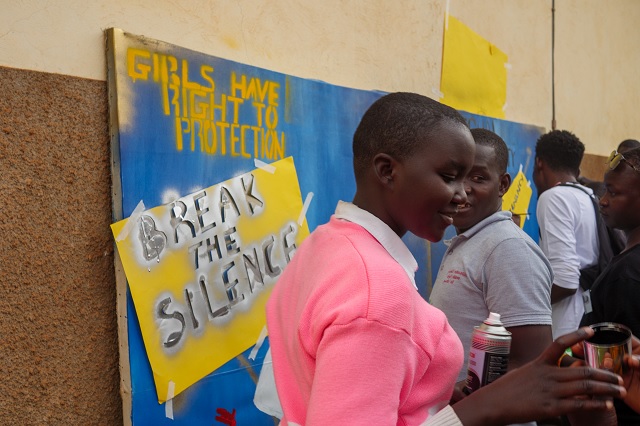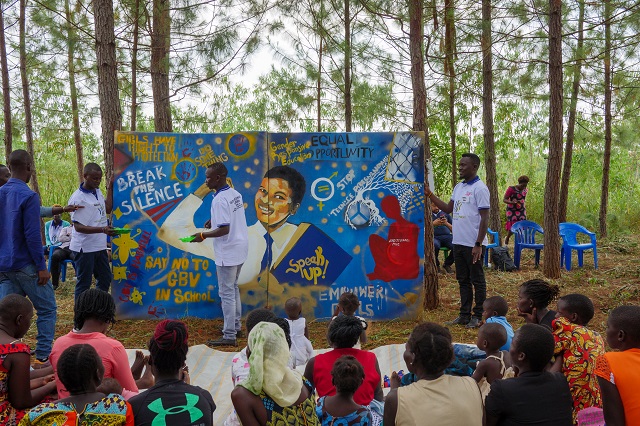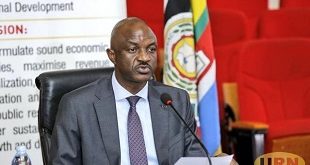
Kampala, Uganda | Ronald Musoke | Pascaline Aburi Albino, a South Sudanese university student in Juba, South Sudan, is convinced the protracted armed conflict in her country has left a negative impact on the education of South Sudanese children.
Aburi, 24, says many of her peers and children younger than her have had to give up on education for fear of being kidnapped, maimed, killed, and/or recruited into forced rebellion.
In South Sudan, according to the latest ‘Education under Attack’ report published by the Global Coalition to Protect Education from Attack, sporadic violence has continued to impact education. The report cites at least ten incidents of attacks on schools in the period starting 2020 and 2021.
According to the report, an additional 26 schools have been used as shelters for displaced persons resulting in significant damage to the facilities. Yet, armed conflict is not the only risk South Sudanese children have to endure in pursuit of an education.
In Aburi’s pastoral Mundari community, conservative cultural practices which force young girls into early marriage are also a big issue. The girls, especially teenagers, are seen as a source of wealth for family, not by being educated and productive, but through being married off in exchange for cows.
“The girls in my community have no voice and choice on whom they want to spend the rest of their lives with. A rich man will approach the family anytime to ask for your hand in marriage and for most young girls they will have no option,” she said.
Aburi was speaking at a forum held July 4-8 in the northern city of Gulu for both Ugandan and South Sudanese children and youth living in armed conflict. It was organized by the Education Above All Foundation in partnership with the Forest Whitaker Peace and Development Initiative (WPDI).
For Hellen Korobe from the northeastern Uganda region of Karamoja, where escalation in armed cattle rustling has increased over the last two years, the continued cattle raids have not only disrupted education for the few at school youth and children but also sparked fear of being kidnapped or killed by armed cattle raiders. She also says growing up in the pastoral community has made her understand that most parents do not see education for girls as necessary.
“While the boys are busy being given the job of looking after cows, the girls are raised to become wives and mothers at an early age. There is less meaning to the value of education imposed by this enduring culture,” she said.
In northern Uganda, where the government army, the Uganda Peoples Defence Forces (UPDF) and Joseph Kony’s Lord’s Resistance Army (LRA) fought a bitter war for over 20 years, the guns have since fallen silent and people are trying to rebuild their lives. But, for 32-year-old George Otoo, living with the post-traumatic experience of the two-decade LRA rebellion has not been easy.
“Sometimes I am lost in thoughts; I keep recounting the bad memories of the things I witnessed as a child soldier but my healing has been gradual and empowered by this programme. I see hope for a better future now,” Otoo said.
These and many other anecdotes were shared during a five-day training of about 30 participants from Uganda and South Sudan who have been raised under conflict and insecure conditions.
It is part of EAA’s Unite to Protect Global Youth Rallies’ that are taking place with youth around the world. The youth rally in Gulu marks the second in the series, with the first taking place in Gaza, Palestine, in June this year.
The youth rally in Uganda comes after a series of reports on a number of youth and children being unable to attend school as a result of conflict and tension in their communities.

In addition to the workshop, participants in Gulu were invited to share their own calls to action in the form of art. The final artwork will be displayed as part of a mural at the World Cup in Qatar alongside pieces created by youth participants from other countries who have taken part in the Global Youth Rallies.
“There are many ways to communicate, and art has not been fully exploited to send a global call for action. We feel with these messages we’ll be reaching out to policymakers and opinion leaders in a medium that is geared towards reframing their imaginations and action for the sake of the youth” said, Kenneth Mulinde, a visual artist and EAA youth advocate.
Boran Choi, an education and advocacy senior specialist at the Education Above All Foundation says the final artwork will reflect a collective demand from youth communities across the globe to uphold UN Security resolution 2601, condemning attacks on education and urging member states to hold perpetrators to account.
 The Independent Uganda: You get the Truth we Pay the Price
The Independent Uganda: You get the Truth we Pay the Price



